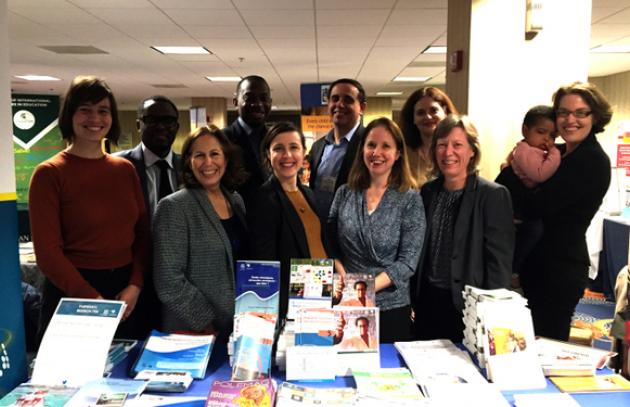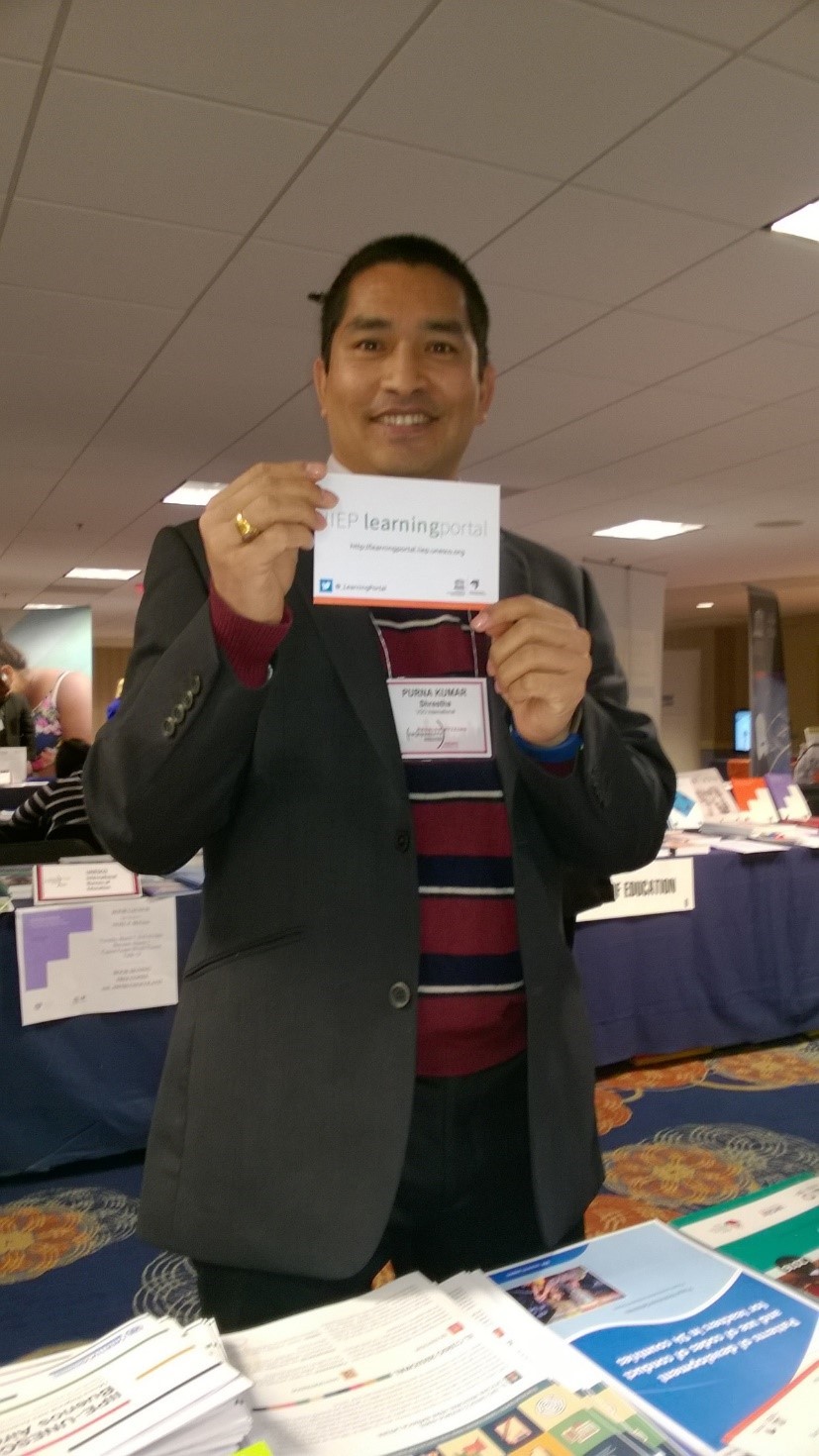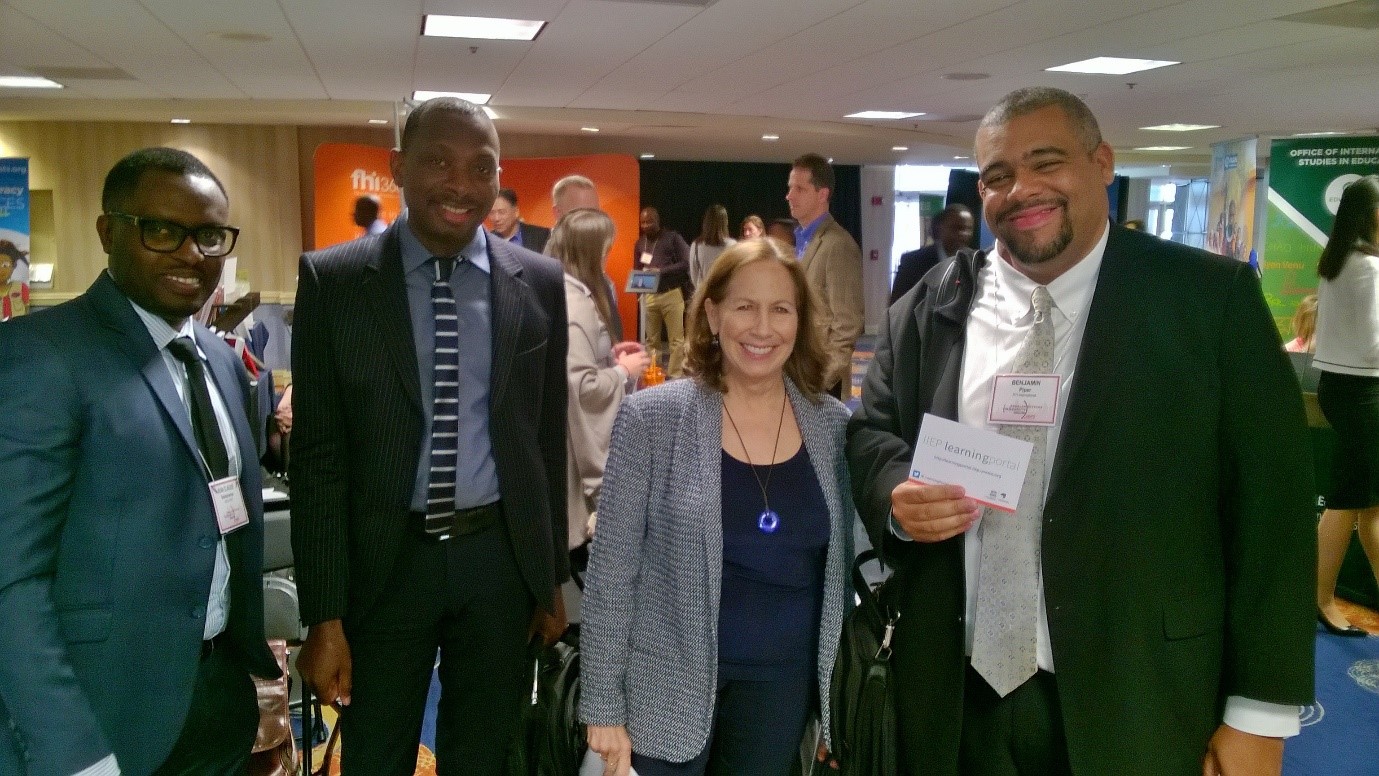129-iiep_learning_portal_at_cies_2017.jpg

IIEP sent a delegation of seven experts in different areas of educational planning to participate in CIES 2017, whose theme was Problematizing (In)Equality. Covering a wide variety of issues, each IIEP presentation offered insights on improving learning outcomes around the world.
“The two big themes of today’s education goals are equity and learning—we need to continually think about whether our programs and our interventions are advancing those goals,” IIEP-UNESCO Director Suzanne Grant Lewis remarked at the opening ceremony of the 2017 Comparative and International Education Society (CIES) conference. Speaking about the importance of “protecting our instinct to care,” she urged attendees to continually renew a personal commitment to developing high-quality education systems for all.
Knowledge (and data) is power
When parents do not know what goes on in schools, and what their children are—or are not—learning, they have little influence over it. “When we talk about open data at the school level”, IIEP’s Muriel Poisson explained, “this includes data related to inputs, but also on learning outcomes.” With this information, local education stakeholders become much more powerful. “We are looking at how the publication of learning outcomes at school level can be used by school communities, including parents, to put pressure on school authorities and on teachers to improve the quality of learning.”
Education planners themselves also need better data on a wide variety of issues, including private financing of education, argued Jean Claude Ndabananiye of IIEP’s Pôle de Dakar. “This data is most related to the issue of access—there are financial constraints affecting access to schooling, and these constraints affect poor households much more than the rich. And there are factors related to quality and learning outcomes too—such as the capacity of households to finance quality inputs, like books and private tuition to help students review and improve their skills. Data about household expenditures can help planners target those who do not have the capacity to pay for these things, and assist them with scholarships or providing extra materials, or other extra support.”

Teacher motivation matters
Barbara Tournier, of IIEP Paris, directs a project focusing on the optimal design of teacher careers. “We know that if you can get teachers more motivated,” she said, “that will improve the quality of their teaching and their pupils’ learning. And we also realize that because teachers are the most important school-level variable that we can have an influence on, we should be focusing our efforts on them.”
Her project draws on a rich array of research and an original mapping exercise conducted in eight countries to discuss the most important factors influencing teacher motivation. “When you look at motivation theories, there are a lot of variables that can be affected by the way the teacher career is organized—like a sense of autonomy, of personal growth, recognition, status, and salary. All of these aspects have an influence on teacher motivation and they are linked to teacher careers. So the idea is that if we can look at promising models of teacher careers, this will potentially have an impact on how they are teaching, and what students are learning.”
Pablo Cevallos Estarellas, Director of IIEP Buenos Aires, also brought new insights on teacher policies, presenting on Ecuador’s 2007–2016 efforts to transform its school system by reforming its teacher policies—showing once again that teacher issues are often central to improving learning outcomes.

Quality education to prevent conflict
A major theme at the conference was the issue of education in conflict and crisis situations, a plight that affects many of the world's out-of-school children. “Education can be a source of conflict, and at the same time it can help to resolve conflict,” remarked Koffi Segniagbeto of IIEP’s Pôle de Dakar. Quality is a key dimension in this paradox, he explained, because “when the system does not take into account the question of inequalities and disparities between regions and social classes, this can become a source of conflict.” To prevent conflict, education planners need to ensure that all children have access to an education of equal quality and value.
They also need to appropriately prepare teachers to teach in these contexts, explained Leonora MacEwen in relation to a new project she is developing at IIEP Paris. “Teachers are key to quality learning. So if you have a teacher who has experienced trauma, or teachers from host communities that are teaching refugees, there’s a whole set of psycho-social skills that are required in order for host teachers to be able to accommodate and meet the needs of refugee students who may have experienced trauma.”
Caring about quality education
Protecting our instinct to care about equity and learning often means stepping back to remind ourselves of the big picture, and what a quality education can achieve. As Segniagbeto explained, quality education can itself teach values and skills to help prevent conflict, from tolerance of diverse ideas to ensuring that everyone has the skills to become gainfully employed. “If education is of poor quality,” he said, “it cannot achieve the objectives it is intended to achieve—it cannot put into place a stable society that is free of crisis and conflict.”





